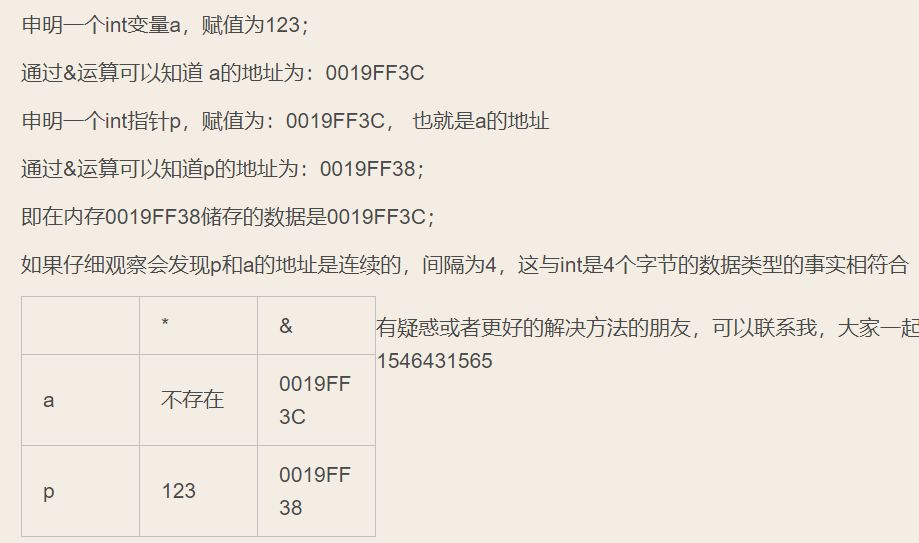https://blog.csdn.net/stpeace/article/details/22220777#
1.this与*this例子
return *this返回的是当前对象的克隆或者本身(若返回类型为A, 则是克隆, 若返回类型为A&, 则是本身 )。
return this返回当前对象的地址(指向当前对象的指针),
如果返回*this:
#include <iostream> using namespace std; class A { public: int x; A& get() //如果返回A会报错:error: taking address of temporary [-fpermissive] //不能获取临时变量的地址,因为会产生拷贝 { return *this; //返回当前对象的拷贝 } }; int main() { A a; a.x = 4; if(a.x == a.get().x) { cout << a.x << endl; } else { cout << "no" << endl; } if(&a == &a.get()) { cout << "yes" << endl; } else { cout << "no" << endl; } return 0; }
输出:
4
yes
如果返回this:
#include <iostream> using namespace std; class A { public: int x; A* get() { return this; } }; int main() { A a; a.x = 4; if(&a == a.get()) { cout << "yes" << endl; } else { cout << "no" << endl; } return 0; }
返回yes
2.*与&的区别
https://www.cnblogs.com/mr-stn/p/9037773.html,举的例子非常好。
#include<iostream> using namespace std; int main(){ int a=123; //&a表示a在内存中的地址,也就是123在内存中的地址 cout<<"a: "<<a<<endl<<"a's address:"<<&a<<endl; //此时p是一个指针,指向a所在的位置 int *p=&a; cout<<"p: "<<p<<endl; //声明p之后,在p之前添加*表示p指向内存的值 cout<<"p's value: "<<*p<<endl; //同时p也是 一个变量,在内存中也有一个地址储存它,但其地址不是a的地址 cout<<"p's address: "<<&p<<endl; //试试*&组合使用是什么效果 cout<<"*&p: "<<*&p<<endl; //&p是一个内存地址,*&p表示&p指向地址内存空间的值,在这里表示a的地址 cout<<"**&p: "<<**&p<<endl; //刚才我们已经知道*&p是a的地址,那么**&p就表示a的值 return 0;}
输出:
a: 123 a's address:0x63fe1c p: 0x63fe1c p's value: 123 p's address: 0x63fe10 *&p: 0x63fe1c **&p: 123

p本身就是一个变量,一个指针变量,它也需要占据存储空间,而引用只是别名,不占用存储空间。